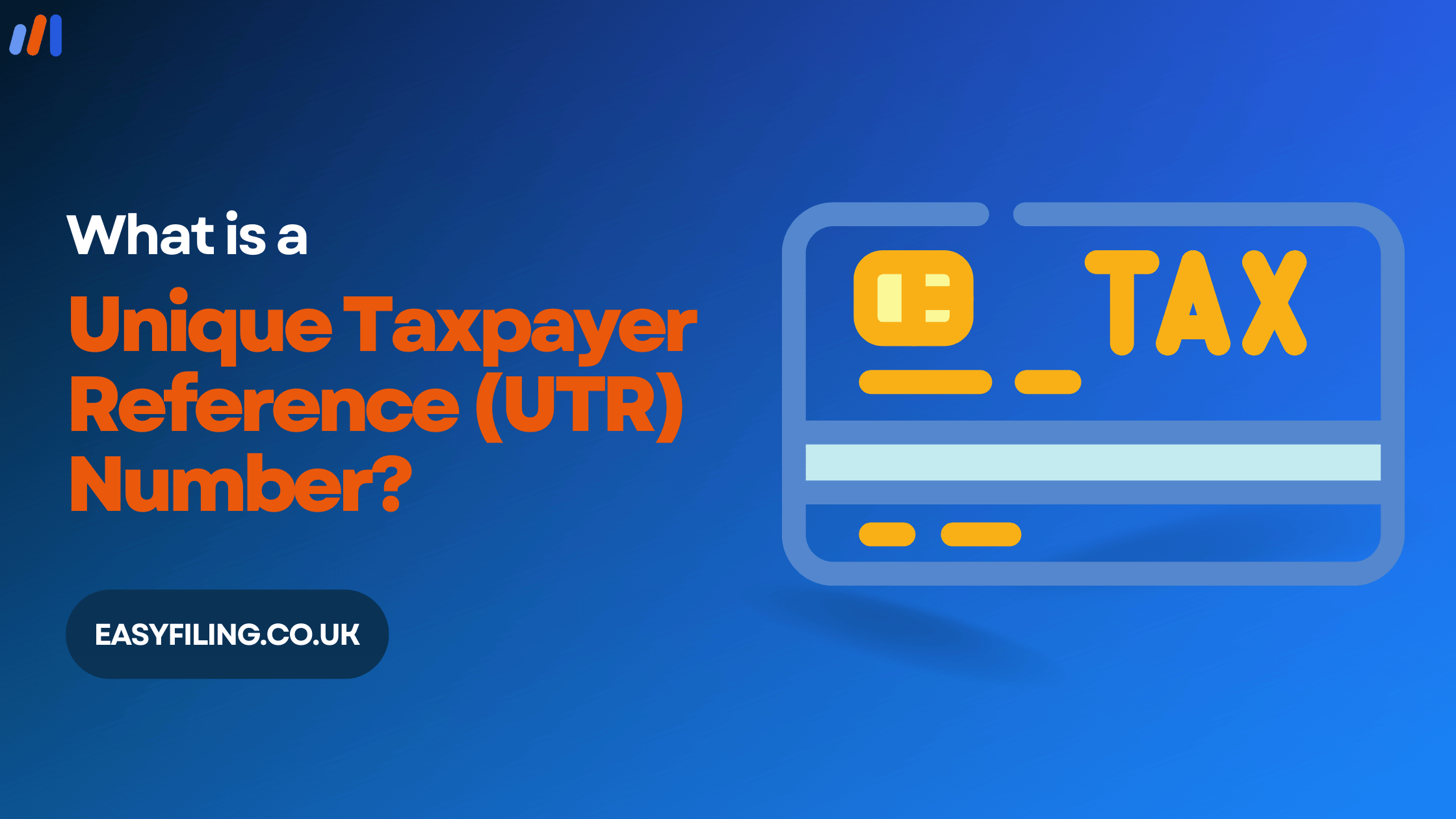Unique Taxpayer Reference (UTR) is a 10-digit number given to individual taxpayers and some entities by HM Revenue and Customs (HMRC) in the United Kingdom for their unique identification. This unique identifier eases the tax administration system in the UK because all activities concerning tax can be properly traced back to the right person or entity.
The UTR is vital when it comes to matters related to taxation such as filing returns, making payments, and communicating with HMRC about any tax-related inquiries or issues. It acts as a key reference point through which HMRC can manage taxpayer accounts effectively and complete compliance procedures regarding taxes.
Any person under obligation to submit a self-assessment tax return or pay their taxes must have a UTR. This could lead them into problems if they do not have that reference number that will make it impossible for them to meet their tax obligations like delaying processing of tax returns and difficulties during payment processes. Therefore, one must understand the importance relating to effective management of taxes and ensure that they remain confidential enough.
Purpose of Unique Taxpayer Reference Number (UTR)
A brief overview of what it means, according to taxpayers, financial institutions, government agencies
For Taxpayers
Identification: This is your 10-digit UTR issued by the revenue authority uniquely identifying you within its system; hence anything regarding your taxes should revolve around it.
Tax Filing: Ensure that your documents are linked correctly to your account during your tax return process using UTR thus preventing misfiling errors and delays in processing.
Confidentiality: Your personal information stays private because your UTR replaces names and addresses used for identity purposes on tax forms.
For Financial Institutions
Verification: Financial institutions require proof of legitimacy from individuals or business organizations such as UTRs so as not to engage in fraudulent deals; this builds trust among clients due to the high transparency levels required under real-life circumstances.
Compliance: Non-compliance penalties can be avoided with institutions using UTRs when it comes to taxation regulations and reporting.
Transaction Tracking: UTR helps the management of accurate financial records where one needs to trace tax payments for the successful completion of transactions.
For Government Agencies
Efficient Administration: Taxpayer’s details are well managed through UTR which promotes efficient service delivery and administration of taxes.
Data Accuracy: The employment of UTRs ensures precise data retrieval or matching that is essential for calculating tax liability and refund processing purposes.
Audit and Monitoring: In carrying out audits, checking compliance as well, and ensuring there is adherence to proper tax obligations by both individuals and companies, then, UTR would be a useful tool.
Who should apply?
Any UK resident who needs to self-assess their taxes will need a Unique Taxpayer Reference (UTR) Number. Here are some examples of people who often require a UTR number:
Self-employed: If you earn money from self-employment or freelance work, you’ll need a UTR number so that you can file your income taxes through self-assessment.
Company directors: Company directors must have a personal tax return with their unique taxpayer reference (UTR) number.
Partners in a business partnership: Each partner must have a personal unique taxpayer reference (UTR) number for their returns on income.
Private Landlords: A self-assessment tax return might be required if you make rental income from properties hence needing to apply for your tax return.
Individuals with other income: These are people who have incomes that are not taxed at source, for instance, overseas earnings, dividends, or investments, and for them to be part of self-assessing individuals they need to acquire UTR numbers.
High earners: You will need a UTR number if you earn £100,000 or more and must fill in a tax return.
Those claiming tax reliefs: For some kinds of tax reliefs claimants may have to complete a self-assessment tax return.
How to Get a Unique Taxpayer Reference (UTR) Number
Step 1: Know If You Need A UTR
A UTR number is mainly used for self-assessment tax returns. You will need one if:
- You are running your own business.
- You earn rental income as a landlord.
- You make extra money which is untaxed.
Step 2: Register For Self Assessment
To get your UTR number, you must register for self-assessment with HM Revenue and Customs (HMRC). This can be done online or by post.
Online Registration:
- Go to the HMRC website
- Choose the option of registering as a self-employed, sole trader, or any appropriate category of registration.
- Follow the instructions given on the next page to complete your registration process.
Postal Registration:
- Visit the HMRC site and download the SA1 form from there
- Enter the necessary information required in it
- Send your filled form to HMRC using the address that is provided in the form itself
Step 3: Get Your UTR Number
After you have registered, HMRC will send your UTR number by post. This typically takes up to ten days (21 days if you are overseas). Keep this document safe as you will be requiring it for tax returns and all other official letters from Her Majesty’s Revenue and Customs.
Documents Needed To Obtain Your UTR Number
For anyone who wants to file taxes in the UK, having a Unique Taxpayer Reference (UTR) number is mandatory. Therefore whether you are working as an individual; need partnership taxation services or dealing with HRMC otherwise, getting yourself a unique taxpayer reference number should be among your priorities. Below is a list of documents that should be considered when applying for a UTR number of these firms.
Self-Employment Or Sole Tradershipers
National Insurance Number: It’s essential for identification purposes only
Personal Details: Name, date of birth, and address
Contact Information: You must have a valid phone number and email address
Business Details:
- Name and address of the business
- Kind of business
- Date when you started trading
Limited Company Directors
Company Registration Number (CRN): This will be issued by the company house.
The Name of the Company and its Address.
Director’s Information:
- Your details such as name, date of birth, and National Insurance number
- Contact information like telephone numbers, email addresses, etc.
Partnerships
Unique Taxpayer Reference of partnership (if any):
Name and Address of Partnership.
Details for Each Partner:
- This includes name, date of birth, national insurance number
- Contact information including phone numbers as well as e-mail addresses
Nature and Start Date of Partnership.
Conclusion
A Unique Taxpayer Reference (UTR) number is an important means of identification for both individuals and firms in the UK tax system. It simplifies the taxation process and ensures that taxpayers are properly acknowledged by HM Revenue and Customs (HMRC).
With your UTR, you can better manage taxes efficiently; evade fines that come with non-compliance to tax laws; and comply with all your tax duties. For effective financial planning and good relations with the tax authorities, it is important to know what your own UTR is. Get in touch with Easyfiling to get your UTR number.
Frequently Asked Questions (FAQs)
What if I lose my UTR?
Upon loss of your UTR, you can retrieve it by logging on to your HMRC online account or contacting HMRC directly. They may need some identification confirmation to help you.
Can an address change alter my UTR?
No. Your UTR remains the same for life, once issued, regardless of any changes in employment status or business circumstances.
Is a National Insurance number the same as a UTR?
A UTR is different from a National Insurance (NI) number. The NI number tracks national insurance payments whereas the UTR manages tax affairs.
Can I share my UTR with others?
You should only share your UTR with trusted parties, such as your accountant or HMRC. Sharing it with unauthorized parties could lead to identity theft or fraud.







